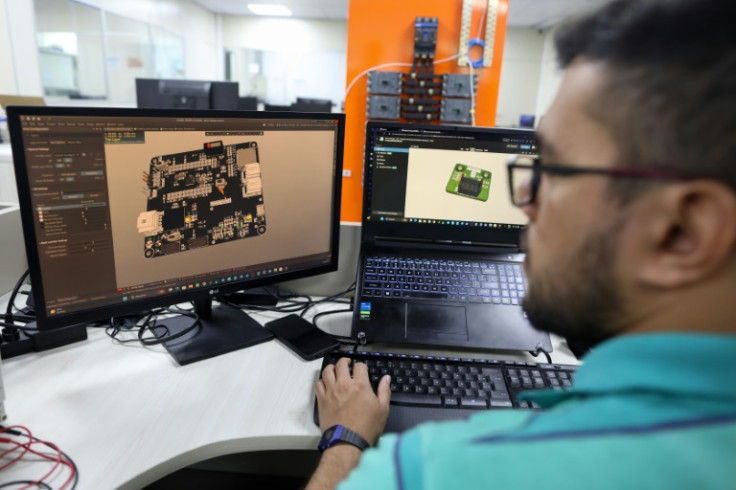Nearly Three-Quarters Of Employers 'Don't Know' How To Implement AI, New Study Shows
According to Gallagher's newly released State of the Sector report, 71 per cent of HR and Communication leaders said their organisation had provided zero guidance on when, where or how to use the technology.

The adoption of artificial intelligence into businesses across the UK is increasing at a rapid pace.
However, a new study shows nearly three-quarters of employers still "don't know" how to implement the technology effectively.
According to Gallagher's newly released State of the Sector report, 71 per cent of HR and Communication leaders said their organisation had provided zero guidance on when, where or how to use the technology.
The study, which drew insights from more than 2,300 industry bosses across 56 countries, also found that 1 in 10 were unsure if their organisation was using AI and 50 per cent said they were skeptical or fearful of using the technology.
"For many organizations, it's the Wild West with regard to how they are adopting and implementing AI," said Ben Reynolds, Global Managing Director of Gallagher's Communication Consulting Practice.
"Because so few organizations have an AI plan, we can connect the dots to better understand why half of the respondents are sceptical or even fearful about the impact of AI."
"However," Reynolds added, "with an AI plan in place, the technologies may help communicators overcome what they've identified as two of the top three barriers in 2024, which are the lack of time and lack of financial resources."
Scepticism over the incorporation of AI may stem from fears it will have a devastating impact on the job market.
Goldman Sachs estimated that AI could automate 25 per cent of the entire labour market in the next few years.
According to McKinsey, nearly half of all work will be AI-driven by 2055.
A survey from the University of Pennsylvania, NYU and Princeton found that ChatGPT alone could impact around 80 per cent of jobs.
Additionally, a report from the outplacement firm Challenger, Gray & Christmas suggests that AI is already replacing thousands of workers.
While several reports have emerged recently sounding the alarm for job loss due to the impact of AI, a new study has said the damage may not be as bad as anticipated.
MIT's Computer Science and Artificial Intelligence Laboratory (CSAIL) investigated whether AI could perform tasks more efficiently than humans and whether it was cost-effective for businesses to replace human labour with AI.
The study took into consideration the broader implications of AI implementation in the labour market, and the results were somewhat surprising.
The researchers found computer vision AI can currently automate tasks that make up 1.6 per cent of worker wages in the US economy, excluding agriculture. However, only 23 per cent of those wages, equivalent to 0.4 per cent of the entire economy, would be cheaper for companies to automate instead of hiring human workers at current costs.
In support of this research, The State of the Sector report found communicators who are using AI already are three times more likely to believe the technology will reduce workloads. AI adopters were also 20 per cent more likely to believe it will improve the quality of communications.
This data suggests that when AI is incorporated correctly, it can have an overwhelmingly positive impact on the workplace.
However, the study reveals significant numbers of business bosses don't understand how AI can benefit their companies.
In November last year, the UK Government released new guidance intended to help employers boost their employees' understanding of AI so they can use it safely in their day-to-day roles, by setting out the key knowledge, skills and behaviours they should have to reap the benefits of AI safely – including how to use artificial intelligence tools effectively.
However, it appears employers are still sceptical about implementing the technology into their day-to-day practices, despite tech companies investing big in AI over the past 12 months.
Microsoft has invested more than $10 billion into OpenAI, the creator of ChatGPT, while Amazon and Apple have launched a slew of AI features for their products this year.
© Copyright IBTimes 2025. All rights reserved.






















